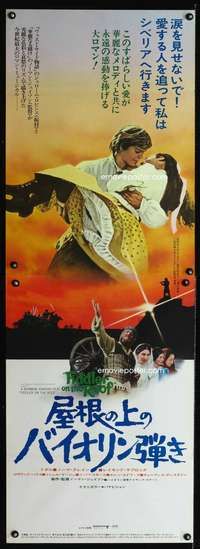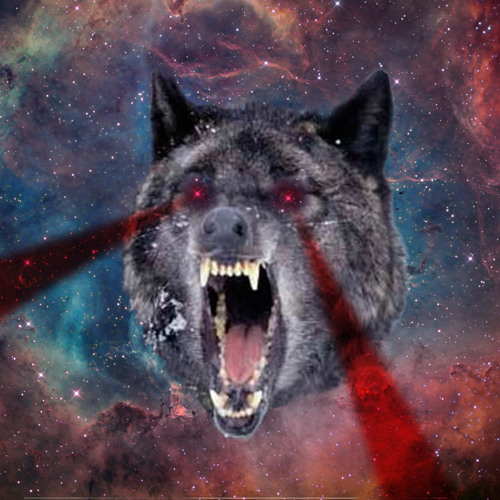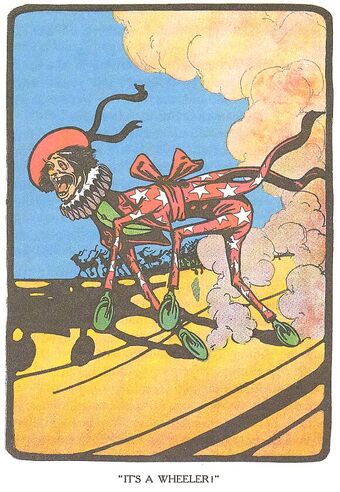-
Content count
2291 -
Joined
-
Last visited
-
Days Won
65
Posts posted by Cam Bert
-
-
4 hours ago, GrahamS. said:Yeah! Way to call out Cam Bert’s priveledge! But is his ivory tower located in a castle in Central Park? Inquiring minds want to know!
You both assume I want to suppress my lust demon. I let that sucker out.
-
 5
5
-
-
The one line that stands out for me is when Kaz runs to take a cold shower to curb his horniness he complains "Damn New York City pluming, you call this cold water?" Water by nature is cold. When it enters a building it doesn't go through a special cold pipe to get colder, it is already cold. There is nothing pluming could do to make the water colder. Granted Kaz is a homeless mentally ill man who sleeps in garbage and probably hasn't had a shower in many a year. Is it the case that his body is so use to washing or bathing in sinks and from hoses that regular cold water isn't that cold to his body? Also, has the inability to get cold water ever really been a complaint? Has anybody ever jumped in a shower and been like "Hey this is warm, I wanted an ice cold shower because I'm a sociopath."
-
 6
6
-
-
1 hour ago, Cinco DeNio said:I watched a different movie. I watched one about the Japanese village of Anatev-kyo.

I get how to a country that probably doesn't really know what Judaism is beyond its name it would be hard to market a movie like this so they play up the romance angle. However the choice to focus not only on the Perchik and Hodel romance in picture and in tagline in the top corner makes me wonder how confusing the movie must have been. They even give away he gets hulled off to Siberia.
-
 3
3
-
-
1 hour ago, Quasar Sniffer said:Ok, deep breath...
So this movie has fascinated me for a long time. It definitely pairs with the other movie adaptation of a spiritually focused musical directed by Norman Jewison in the early 1970s, Jesus Christ Superstar. The latter is definitely a much lower budget endeavor which puzzles me considering such a monster hit Fiddler on the Roof Was. I think in college I was looking up what were the most successful movies in big, important years in cinema and I was shocked to see what a phenomenon Fiddler was. A year before The Godfather, two years after Easy Rider supposedly made old Hollywood ideas (like epic musicals) extinct, was this, to me, an anomaly of a film. I know the Broadway musical was a smash, but a three-hour musical about pogroms, poverty, and the conflict between tradition and modernity in late Tsarist Russia seemed so unlikely to me. Plus, one of the most challenging and rewarding classes I took in college, around the time I discovered this movie, was a History of Russia class, much of which focused on this exact time period.
Structurally, I think this musical is interesting from the get-go because it kind of has an "I want" song in "Tradition," but what Tevye wants is for things to stay the same as they always have been, just if he could maybe have a little more money and have to work a little less hard. Especially considering how much his family and his entire life are upended by the end of the film, our protagonist is actively opposing progress throughout the movie (though he's more open to change than a lot of his fellow villagers). Tevye is our window into this world, but what fascinated me about him is that he's just a bit beyond an Everyman character: he's a little smarter, a little wiser, a little funnier, has a little more perspective, works a little harder, has a little more of an active relationship with God, and is willing to bend the rules a little more than his fellow villagers. Not a lot, but a little. And all of those little bits make him, to me, a hero. So by the end, even when it takes his entire family yelling at him for him to acknowledge his daughter again, even if only for a moment, we see him carting all his belongings through the mud with a rope over his shoulder, he is a hero.
Sure, we'd like him to be heroic enough to accept his daughter with open arms at that moment, but in this moment in history, in this movie, that is just a bridge too far. Tevye's life has been entirely upended by these gentile Russians; his daughter's wedding was ruined, his family is displaced, and his ancestral home destroyed. And now his own child is married to one? FUCK.
I think that's a wonderful illustration of the theme of Tradition introduced in the opening song. It's tradition that this town, this community, this religion, has survived for millenia, living through pogroms and crusades and genocide. Their entire existence lives on the precipice of destruction (like that Fiddler), so of course this community depends on tradition to keep it together and alive. It is to Tevye's credit that he is able to recognize the damaging, or at least not useful, elements of that tradition and let it go, so his daughters can find happiness. Sure he grumbles about God and his fate, but he comes around eventually. Musically, the film stands out as it embodies that tradition with its orchestration and instrumentation. It combines 20th century modes of storytelling (the Broadway/big film musical) with sounds and rhythms of traditional Jewish music and culture. We are listening to the give and take of progress vs. tradition that is going on in Tevye's own mind.
I know a lot of people are bothered by the tonal shift after the intermission, but I actually find it thematically appropriate. I think it is indicative of the life of Jews in Eastern Europe for much of the last, well, millennia. That is, existing on the edge between livable misery and intolerable trauma, going from where one is able to joke about one's living conditions in order to suffer through it, to tragedy so severe it constitutes a landmark break from everything one knows and cherishes. They lived that edge-of-the rooftop existence every day for generations.
I have MANY more thoughts on this film, but I will end this rant by saying that this movie connects to me even on a spiritual level. The tableau at the end of the film, with the villagers, now refugees, staring starkly and longingly into both the camera and their grim future, breaks my heart. These images echo every Jewish refugee in history, from ancient Babylon to the Holocaust, and the Boomer generation that made up much of the audience for this film, whose own familes barely escaped or were victims of that genocide, it must has been harrowing. Me being Catholic, it affects me in a different way; in that I am reminded of all the refugee crises America has ignored since then, from Syria to those at our own border. It's reprehensible and tragic on a global scale and, personally, it's against everything I believe in to ignore people in such poverty and pain. The Bible is full of Jewish refugees that it frames as heroes, not just the many mentioned in Fiddler on the Roof, but also that one Jesus guy. So any Christian who would ignore these people, or participate in their destruction, makes me just so fucking angry. There's a panoply of movies about global crises of the present or the past, but maybe it's the smallness of the scale of this film combined with the scale of the music that makes it connect with me so deeply.
I liked it because the one guy was called Laser Wolf*

*yes I'm aware it's spelled differently
-
 1
1
-
 4
4
-
-
15 hours ago, Cinco DeNio said:Would you like to have a Kast party? Due to my disability I am home most of the day.
I'll let you know once my weekend schedule is more clear. Thanks!
-
 1
1
-
-
I am unable to watch Hamilton because Japan has Disney Deluxe with is Disney Plus but with a much more limited release schedule and offerings. Maybe in a few months.
Also looking forward to this pick. This is one of those musicals again I always feel like I should watch because it's a classic but never have.
-
 2
2
-
-
I believe this is Michael's picture

-
 5
5
-
 3
3
-
-
11 hours ago, Cameron H. said:The Wheelers are from the books. In fact, a lot of the stuff in Return to Oz is. It might be the other way around and The Wiz was borrowing from the books.

I thought the movie versions were terrifying but they didn't even capture one tenth of their nightmare potential.
-
 2
2
-
-
Has anybody here read the Oz books? I had a curious thought.
So in the original we had flying monkeys. In The Wiz the flying monkeys were these weird motorcycle human hybrid things. Now in Return to Oz there are no flying monkeys but there are the wheelers which are people who ride around on all fours with wheels for hands and feet which is not a million miles off from human bicycle hybrids. Now I'm curious if that was from the Oz books or is it a weird callback to the flying monkeys in The Wiz or just coincidence?
-
 3
3
-
-
9 hours ago, AlmostAGhost said:Hm one of the main critiques of the original is the whole is message is "there's no place like home" which makes little sense after visiting a magical wonderland like Oz. Here, it makes a bit more sense because Dorothy is such a homebody introvert.
I think the advantage of Return to Oz and Wizard of Oz is that we spend a fair amount of time with Dorothy pre-Oz and we get to know her as a character. We know her motivations and fears and that. Here, we barely get to met her and just her Aunt who loves her wanting to get out and see the world. It's all very short and really boiled down. To this extent I think the metaphorical nature of Oz gets kind of muddled. In the original all the things she sees are parallels to things in her real life or real world adding to those whole "was it all a dream" type situation. If we draw that out to the idea that Dorothy is a homebody afraid to get out there, the things she sees and experiences should further this notion which I think it only does to a certain extent. Sometimes it feels like it is doing things because that's what happens in Wizard of Oz and not because that would be the next logical step.
Edit: Sorry morning brain I should expand. The things Dorothy sees in the original are all things to help her realize that home is not so bad. That's why the friendly farmhands are her friends, the evil witch is the mean old woman and her ticket out is a travelling huckster. If in The Wiz the thing was Dorothy should get out and see the world and not be a homebody the metaphors should be things that would want to motivate her to get out there. I get this film and the musical from what I understand is suppose to be about the black experience in America and I got that. I think the journey and metaphors serve that more than they serve as development for the Dorothy character. As a result I found her just there to move the story along (though I like as Cameron pointed out she's one at the end the puts things together) and the encounters and that don't really relate to her arc of "shy girl needs to get out more."
-
 4
4
-
-
7 minutes ago, Cinco DeNio said:So Dorothy is the dungeon master?
No, that would probably be Glenda.
-
 3
3
-
-
6 minutes ago, Cameron H. said:Overall, I agree. I enjoyed the music and choreography. I found out that people felt Diana Ross was too old at 33 to play Dorothy, so that makes me feel a bit protective of her. I thought she did a great job.
I agree. I think her character was just underwritten and none of the problems could really be laid on her.
-
 3
3
-
-
So I overall enjoyed the movie. Mostly for it's music and wonderful production design. I thought the make up and costumes were fabulous. Story wise there are some problems. I think Dorothy here has real weak motivations and not a real arc. In addition I thought some of the metaphors worked better than others and they seemed to forget about that at points. However updating the poppy fields to be drugs and stuff like that I thought were good and creative.
-
 3
3
-
-
8 minutes ago, Cameron H. said:I have always loved how Dorthy takes the witch’s shoes like she’s in RPG trying to gear up her character.
She does gather a party as well. It is all very RPG
-
 3
3
-
-
36 minutes ago, grudlian. said:Phew. I was worried Richard Pryor did something horrible I hadn't heard about yet.
You know I hear he might have had a drug problem...
-
 2
2
-
 1
1
-
-
26 minutes ago, grudlian. said:Is the controversial figure Michael Jackson? Or is there someone else I'm not aware of being awful?
It would be he. I wasn't sure where people fell on separating his work and his actions.
-
 4
4
-
-
Okay, sorry for the delay all.
So I had a pick and it was one I've been wanting to do for awhile now. Then I read some news this morning on my way into work that changed my mind. It reminded me of another movie that I've always been interested in checking out. However, I can foresee maybe some problems with this pick. It contains a person who has become a controversial figure and some people maybe put off by that and not want to watch. I can respect and understand that. If that is how the majority feels I'm more than willing to go back to my first pick. So with that preamble out of the way my pick is...
:format(jpeg):mode_rgb():quality(90)/discogs-images/R-4519923-1369455724-4902.jpeg.jpg)
Screenplay by the late Joel Schumacher. R.I.P.
Now I would much rather watch the actual Broadway version of the play. Unfortunately from what little sleuthing I have done I can not find a version that I can get here in Japan or is not region blocked.
-
 5
5
-
-
Sorry all busy morning at work. Give me an hour or so and then I’ll have something up
-
 3
3
-
-
I agree with a lot of what has been said but I will throw on top another thing I had a problem with is I found both of them to be selfish people. I found out after watching that this was based on real people and it made me wonder if it is an accurate representation of the real people. Fanny was forever just doing whatever she wanted without care for the audience, the producers, the directors, her co-workers, and later her husband. I get that she was driven and everything but her raise to success was underplayed for her to be such a selfish character to me. Like mention she claims of being ugly and that hold her back, but we don't really see that. We get a scene a start but ultimately because she gets helped out right away so it doesn't matter and wasn't really a struggle. Everything she does just always works out for her and we don't see any of the struggle, so she just comes across as selfish. It doesn't help that she rarely has any moments where her defenses are down and actually talks to people. It's just a series of snappy comebacks. That's not to say Omar Sharif was any better. Again a man who leads a girl on and then just disappears for a year and a half because he does things on a whim and follows luck and fortune just makes him come off as selfish as well. The only reason she's falling for him is because he's handsome, because personality wise he's selfish and only thinking of his needs. There is no doubt once they spent time together they did fall in love but I found it hard to get invested in their relationship.
-
 6
6
-
-

This coleslaw fucks
-
 1
1
-
 2
2
-
-
56 minutes ago, Cameron H. said:Aside from V8, what is the least sexiest food/beverage? My vote will always be for coleslaw.

By not adding raisins you're not adding the sex appeal.
-
 3
3
-
-
3 hours ago, Cinco DeNio said:You didn't watch A Star is Born when we talked about the new one?
No I didn't sadly. I was too intimidated by Kris Kristofferson's beard.
-
 1
1
-
 1
1
-
-
1 hour ago, AlmostAGhost said:Not Meet The Fockers?
Haha but ya I'm mostly the same. I saw her A Star Is Born and I like her in it, but none of her other classics and I'm looking forward to that
Now I'm trying to think if I saw that... if that was the third no. If that was the second... maybe?
-
 1
1
-
-
1 hour ago, DannytheWall said:Good shout outs to character actor James Hong. Like bumping into an old friend, it’s always a pleasure. “Hey! It’s you! Wow, it’s been a while!” Of course, we greet each other with a rueful smile, as once again Hollywood casts a Chinese-American actor to play a Japanese man. But then again, maybe that fits in a movie where a Chinese medical shop performs Japanese exorcism, or the fact there’s a Japanese temple in Arizona where Chinese kung-fu is being practiced.
But do Japanese ghosts possess people?There are a ton of Japanese ghost stories and their urban legends are notorious, but the kind of ghostly possession featured in Ninja III falls more into the Western ideas, like in the tradition of Regan in The Exorcist or Emily Rose. In these stories, it’s demons going into the body of another, with the horror being a loss of control and individuality, the helplessness and victimizing. Japanese spirits are yūrei (“faded souls”) more distinct from demons. They’re more like “haunting” kinds of ghosts, even violent ones, similiar to a poltergeist. These are called onryō (vengeful spirit) and will feature in movies like the Ring and Ju-On.
Possession in the way we might think of does occur in a couple of ways, but it’s not easy to do a one-to-one translation for these kinds of ideas. You can think of one way as similar to channneling, like how mediums invite spirits into them. Another way is to use haunted items and risk being influenced by an accompaning spirit. Still not an exact Emily Rose scenario, and the horror is more existential, a kind of warning— against attachment that Buddhism says is the root of suffering.
The closest we get to Regan & Emily is a unique Japanese possession featuring a ikiryō, or a “living spirit.” Here, it’s not a dead person at all, but a consuming spirit that detaches from someone living to afflict others. The most famous story comes from the Tales of Genji, the classic ancient hero of Japan. Here, a mistress of our hero Genji grew so jealous over his wife that the jealousy became a ghost and possessed the wife, afflicting her with mental distress and leading to her death in childbirth. The horror here? I dunno, probably patriarchy.

(Standard disclaimers that the world of Japanese ghosts is prolific and tied intrinsicly to culture/religion, and I am only a hobbyist looking to learn if others can correct or expand on anything.)
Well I don't want to speak on too much authority, I have lived in Japan for 16 but not born here, but this is pretty spot on. Japanese do believe in spirits and ghosts and them haunting and residing in places, but there is no real history of them possessing people. There are those than can channel spirits but for actual ghosts stories of a possession nature are indeed very rare.
On 6/7/2020 at 11:27 PM, RyanSz said:Omission:
The crew were wondering what was eye-patch's motivation for hunting the ninja, it's revealed in a quick flashback that the ninja was responsible to killing eye-patch's entire clan and making him watch, thus making him want revenge against the ninja. Also during the opening fight I'm amazed no one mentioned the stunt where the ninja knocks a cop of his motorcycle in front of the water hazard, and the stunt man is clearly seen landing on the ground as his bike starts to flip, but the very next shot shows him and the bike being rocketed into the water. It was some of the laziest and choppy editing I've ever seen. Also I know there was talk about connecting to the other two Ninja films, but neither movie is connected to one another as well, they basically just share a title and the fact that ninjas are in them, they don't even have a supernatural element to them.
Quick addition to this. The one man we see the black ninja killing is eye patch's father. He actually cries out for his father in Japanese.
-
 6
6
-



Episode 244 - My Demon Lover
in How Did This Get Made?
Posted
Okay, since this double posted I need to come up with something...
Did anybody else wonder where the rest of Kaz's wardrobe came from? When they first start dating we see a montage of their activities and then later on he's got new clothes. Are those Chip's old clothes? Did she buy this homeless guy she just met a full wardrobe including a comical bow tie? Was that Chip's bow tie? Even despite this he goes back to a laundered version of this red sports coat and shirt. I get that it's clean now, but you have a bunch of new clothes, why wear those again? No amount of washing is going to get the sleeping in garbage out.